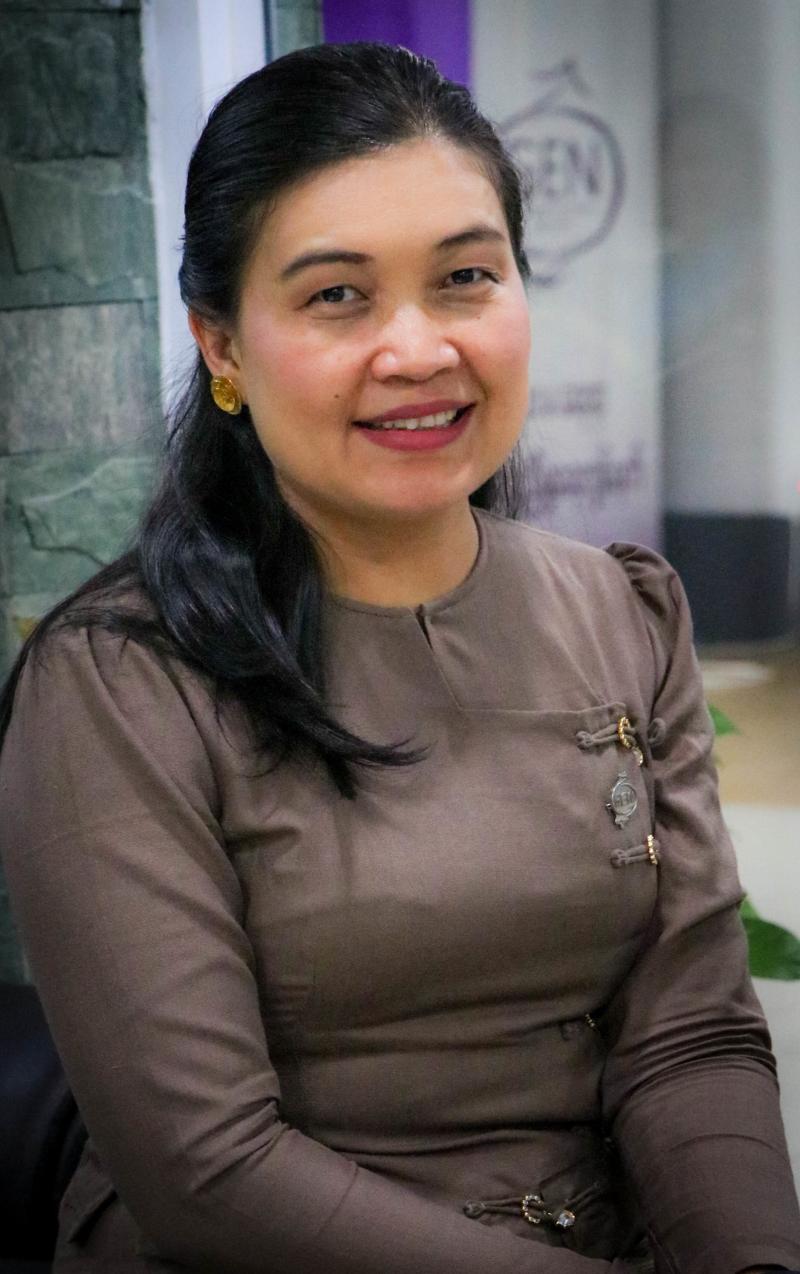

WPHF - May Sabe Phyu is a human rights defender, peace advocate and WPHF partner from Myanmar. Her work centers around advancing social justice for Myanmar’s ethnic minorities, combating violence against women and girls and advancing gender equality.
“Gender equality is the first step for societies to live in peace and harmony. Only when people understand the meaning of equality and value and respect the rights of women can conflicts be ended.”
With support from WPHF, May Sabe has worked — in partnership with Action Aid International — to enhance the gender responsiveness of humanitarian action during the COVID-19 pandemic. Her critical work has provided displaced women and girls with hygiene kits, protective equipment and training on protection against gender-based violence and sexual exploitation and abuse across Kachin State, a mountainous region in northern Myanmar.
“When women get involved in decision-making, it’s not just good for women and girls, but for everyone. They understand the needs and challenges of the wider society and make decisions seeking the common good.”
Born into a multi-ethnic family, May Sabe soon learned about the reality of ethnic discrimination and the inextricable connection between ethnicity and armed conflict in Myanmar. While her mother was born in Kachin State, her father belongs to the Bamar, the dominant ethnic group in the country, which has systematically excluded, marginalized, and oppressed ethnic minorities, including the Kachin, for decades.
“As a mixed-blood child, I was always seen as an outsider in my own community. This discrimination made me think a lot about the origin of Myanmar’s ethnic divide and inspired me to become a peace activist and advocate for ending inequality and violence, especially in remote areas.”
It was through the work of her father, a doctor, that May Sabe witnessed firsthand the harsh conditions thousands of internally displaced people (IDPs) faced in Kachin State, where most of them did not have access to emergency healthcare, education, transportation, and communications services. Following in the footsteps of her father, she started working as a health educator, providing healthcare services to patients of malaria, tuberculosis, and sexually transmitted diseases, including HIV/AIDS; and disseminating health education messages among vulnerable and marginalized populations.
“Poverty, isolation, gender stereotypes — all these elements help perpetuate the cycle of violence and undermine the role of women in the public and private life.”
After living under a military dictatorship for most of her life, May Sabe knows that men’s hunger for power and authority can result in increased violence and the adoption of policies that fail to address the needs of women and girls. While most people in Myanmar still believe that women’s place is at home, not in politics, and that women lack the knowledge and skills to lead, May Sabe is a firm advocate for feminist leadership and strongly believes that women’s negotiation skills are critical for advancing peaceful dialogue and achieving sustainable peace.
“When they get to participate in peace negotiations, women serve as medicine: they talk to both sides, try to negotiate, and make people listen to each other. A lot of evidence-based research, not just my experience, highlights this.”
Unlike 1990s Myanmar — a period of complete isolation from the rest of the world — peace activists and human rights defenders in the Asian country now have access to global platforms where they can raise their voices, speak about what’s happening on the ground, and bring attention to the needs and challenges of their communities.
“The world is watching, and people in Myanmar are resisting every day, everywhere. They’re showing their determination and desire for immediate change. We need to rely on their power and keep our hope.”
Originally published on wphfund.org